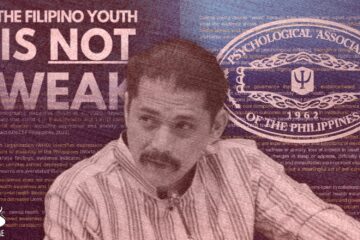IN LINE with the observance of Violence Against Women Day, the UST Central Student Council (CSC) on Thursday premiered a webinar encouraging victims of domestic violence to seek help and urging the youth to “proactively participate” in helping them.
“HAB;L: Championing Safe Spaces for Victim Survivors” highlighted four speakers that delve deeper into the topic of abuse on women and how to help those who have experienced abuse in their lives.
Philippine Commission on Women (PCW) chairperson Sandra Sanchez-Montano assured the safety, help, and legal aid for victims of domestic Violence Against Women and their Children (VAWC).
“Here in PCW, we have a referral system [for the victims who] can be referred to a different agency na ‘yun ang kanilang direct [service]. If in case na kailangan n’yo pa ng further help, meron namang mga VAWC helpdesk diyan na puwedeng tumulong,” Montano said.
The VAWC is accomplished in various forms including physical, mental, psychological, and economic perversions, which is also sanctioned under laws such as the Republic Act 9262 “Anti Violence Against Women and their Children Act of 2004” and the Republic Act 1131 “The Safe Space Act,” according to Montano.
She also featured a presentation about what she called “cycle of violence” which indicated the different possible signs or events of abuse that women go through in their life.
By proactively participating in reporting violence, Montano said that the data being gathered are used to draft laws that will further mitigate domestic violence.
Kana Takahashi, one of the founders of feminist group UST Hiraya, focused the discussion on the effects of abuse on mental health and delve deeper into the emotional abuse that can be “destructive and feel damaging as physical abuse.”
Takahashi cited intimidation, invalidation, and unreasonable maneuvering actions as common signs that a person is being abused emotionally.
“Although your natural response may be to rescue someone, of course, if the someone is you care about from domestic violence. [However,] the person being abused is to make a decision of whether and when to leave and get help,” Takahashi said on helping an individual experiencing domestic violence.
Virginia Lacsa-Suarez, a lawyer and women’s right activist, cited that the root-cause of violence is the patriarchal societal structure, which was adopted from early times.
“Patriarchy […] ‘yun yung gender violence [at] ‘yun yung hindi patas na pagtingin sa babae at lalaki. Patriarchy is misogyny,” Suarez said.
She also focused on the different laws, legalities, and facts connected with violence against women and quoted famous minds of history.
Suarez also shared her drafted bill titled “End Child and Forced Marriages” and mentioned that “child marriage” must be considered as a criminal offense, specifically, as child abuse.
Meanwhile, UST Student Organizations Coordinating Council interim president and chief executive officer Rome Voltaire Gomez discussed the different policies and grievance system in the university, highlighting PPS No. 1028 and PPS No. 1029a of the UST Student Handbook.
UST Hiraya closed off the event as officers presented their help desk seeking to end in-campus discrimination and violence by empowering victim-survivors of their right to demand for accountability.
The UST-CSC concluded the weeklong event “Maligaya ba si Ligaya?” with the premiere of Bahay-Bahayan, a play and talk-back session on the violence against women. F



